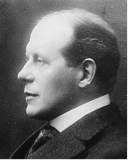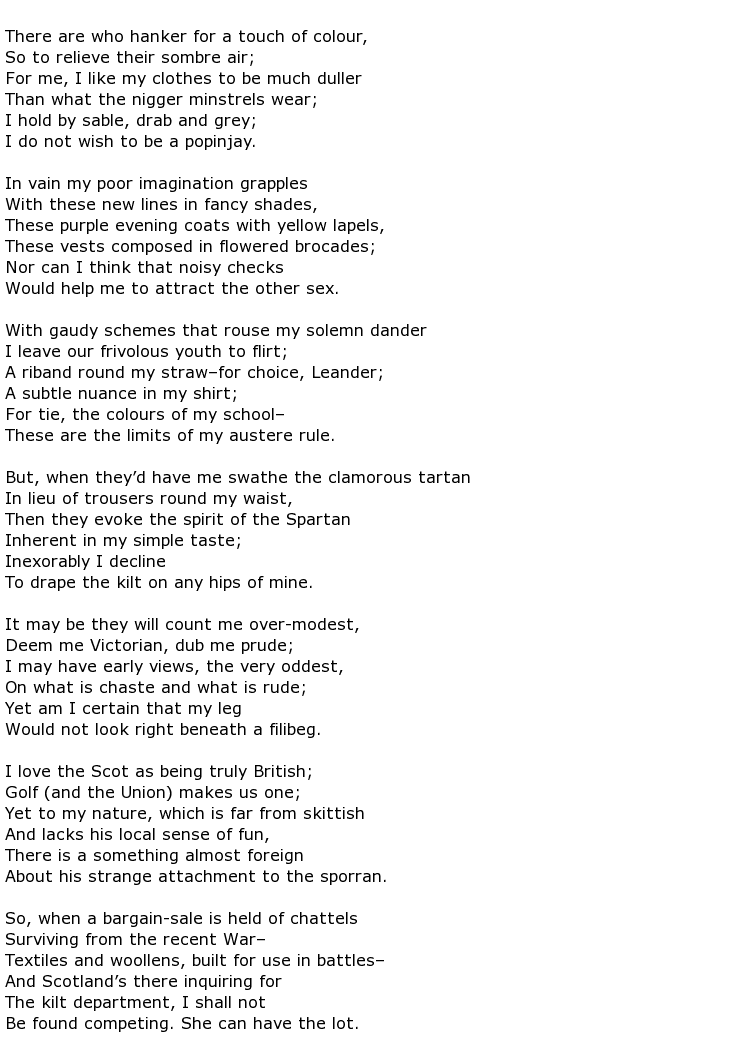 Owen Seaman was an English poet, magazine editor, schoolmaster and barrister at London’s Inner Temple. At the outbreak of the First World War he was knighted for his services to literature, much of which had been of a light-hearted nature.
Owen Seaman was an English poet, magazine editor, schoolmaster and barrister at London’s Inner Temple. At the outbreak of the First World War he was knighted for his services to literature, much of which had been of a light-hearted nature.
He was born on the 18th September 1861 in the Midlands town of Shrewsbury. He studied at the prestigious School there and then went on to study at Cambridge’s Clare College,. He was a very able student throughout. In his early twenties he occupied teaching posts at Oxford’s Magdalen College School and Rossall School. By 1890 he had become a professor at Newcastle upon Tyne’s Durham College. He spent thirteen years in this post and, seven years in, he was called to the bar in 1897.
Seaman was, at first, known for his light-hearted, humorous work and first came to attention with a parody of the famous Rudyard Kipling. This was published in Punch magazine in 1894 and, that year, he was inspired to write a number of other parodies that were published. Suitably impressed by the quality of his work, the management of Punch invited him to work for them in 1897 and he rose to the editorship in 1906. A colleague at the time was the children’s author A.A Milne and some have suggested that the gloomy character “Eeyore”, might have been based on the lugubrious Seaman.
During the war he wrote patriotic verses which were designed to invoke optimism on the part of the reader but his output could never be described as “poetic genius”. He was clearly a patriot and he tried to encourage his countrymen to join him in his efforts to inspire victory. The now Sir Owen Seaman published a volume of poems called War Time in 1915 and this was described, by the anthologist John M Munro, as “a mixture of satiric verse and patriotic doggerel.”
Much of his work had a political theme to it but it was rarely of a serious nature. However, while some of his parodies were light hearted and harmless, he was never afraid to introduce ridicule and cutting commentary into his verse whenever necessary. Here is an example of one of his light-hearted poems suggesting that the colourful fashions adopted by, say, the Scots, with their vivid tartans and decorative sporrans, are not necessarily to the author’s taste. Perhaps it was a reflection of the comment above about his gloomy nature that Seaman prefers his apparel to be of a more sober nature. The poem is called Fashions for Men:

In recognition of his lifetime’s work he received honorary degrees from three separate universities: Durham (1906), Edinburgh (1924), and finally Oxford in 1933. In that same year Sir Owen became baronet. Unfortunately he did not live much longer to enjoy it.
Sir Owen Seaman died on the 2nd February 1936 at the age of 74 and is buried in London.

